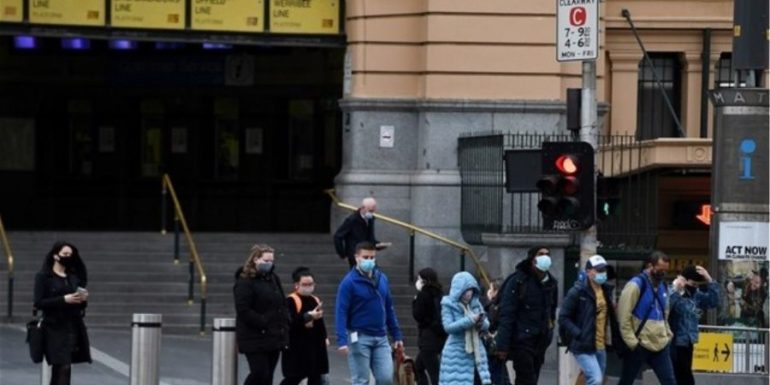Australia wanted to ease the pressure on its test facilities COVID-19 flooded by limiting the definition of what constitutes close contact with a person infected with the virus and easing test requirements, as daily infections reached 20.000 for the first time during the pandemic.
Australia is struggling to cope with the rapid spread of the Omicron variant of the coronavirus as most states have relaxed the strict restrictions, and like other countries, betting that the highly contagious variant is much less severe than before.
The rules are also relaxed so that asymptomatic people do not have to be isolated, especially health care workers, hotels and airlines, and there is no need for citizens who are forced to take PCR tests for interstate travel. or because they were found in a public place with a confirmed case of coronavirus, waiting a long time in line.
"With Omicron, we can not have hundreds of thousands of Australians out of circulation under the Delta version of the rules," Prime Minister Scott Morrison told reporters.
Infections from COVID-19 The world has broken records in the last seven days, according to data from Reuters yesterday, as Omicron is spreading out of control and governments are trying to curb its spread without paralyzing vulnerable economies.
Daytime infections in Australia rose from about 1.200 a month ago when Omicron was first detected in Australia to 21.329 today.
As of Friday, Morrison said people living in the same household with an infected person would be considered "close contacts." They should be isolated for seven days and tested for PCR only if they have symptoms COVID-19.
"If you are not in close contact and you are not accidental, you do not need to go for a test," Morrison said after a cabinet meeting.
With the proposed rules, health professionals will rely more on rapid antigen tests at home, while PCR tests will be used for people with COVID symptoms and the vulnerable.
Although record infections are putting pressure on test facilities, hospitalizations are lower than at the peak of the Delta wave.
"Omicron, however, is less serious. That fact must be taken into account. "
Of the more than 110.000 active infections, only about 120 people, or 0,11%, are being treated in intensive care units, according to official figures, largely following the trend in countries with higher levels of vaccination coverage.
However, Australian doctors criticized the new definition of what is considered close contact, saying that it would further accelerate the outbreak of the pandemic.
"(Omicron) does not care if you are a family member, a colleague, having a drink at the pub or breathing the same air in an elevator," Omar Horshid, president of the Australian Medical Association, tweeted.
Kelly rejected the criticism.
"We will have more infections. There is no doubt about it. "This is a way to manage the heavy workload," he told reporters.
Despite the Omicron wave, Australia's death toll, with nearly 363.000 infections and 2.225 deaths, is far lower than that of many comparable countries.
Source: RES-EAP
